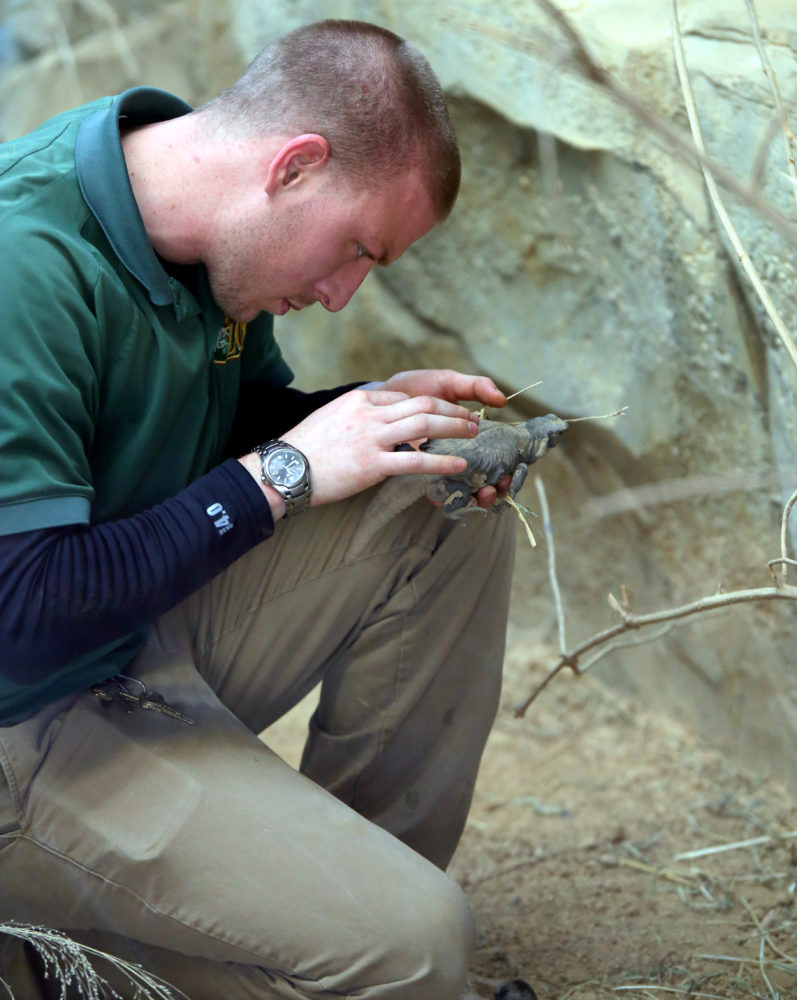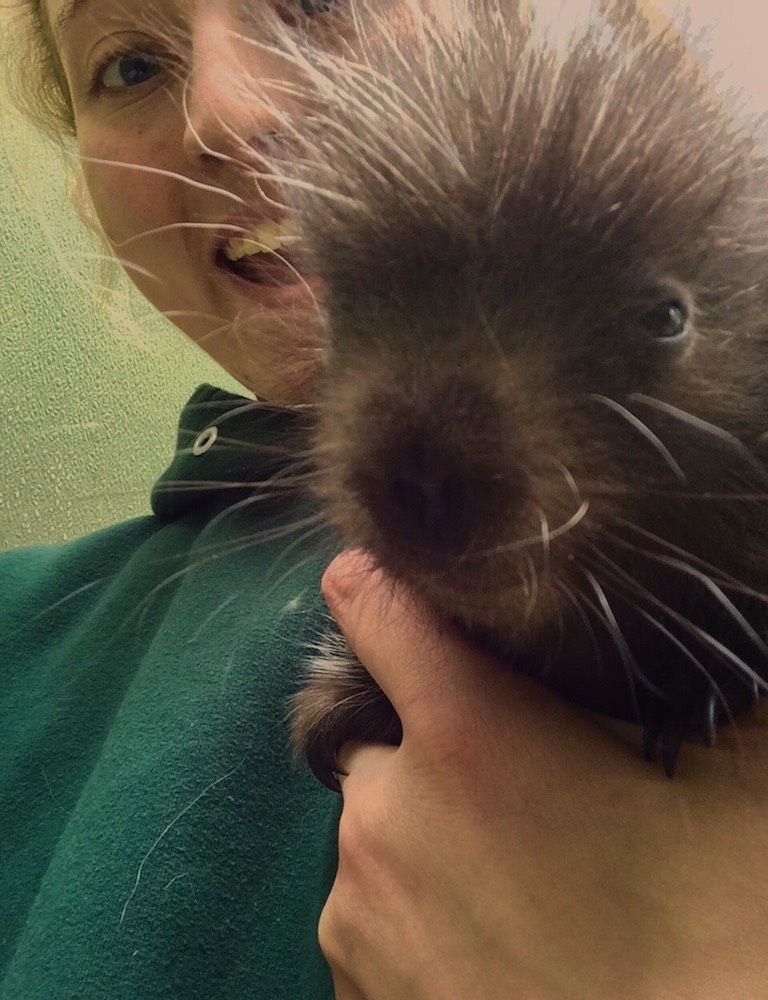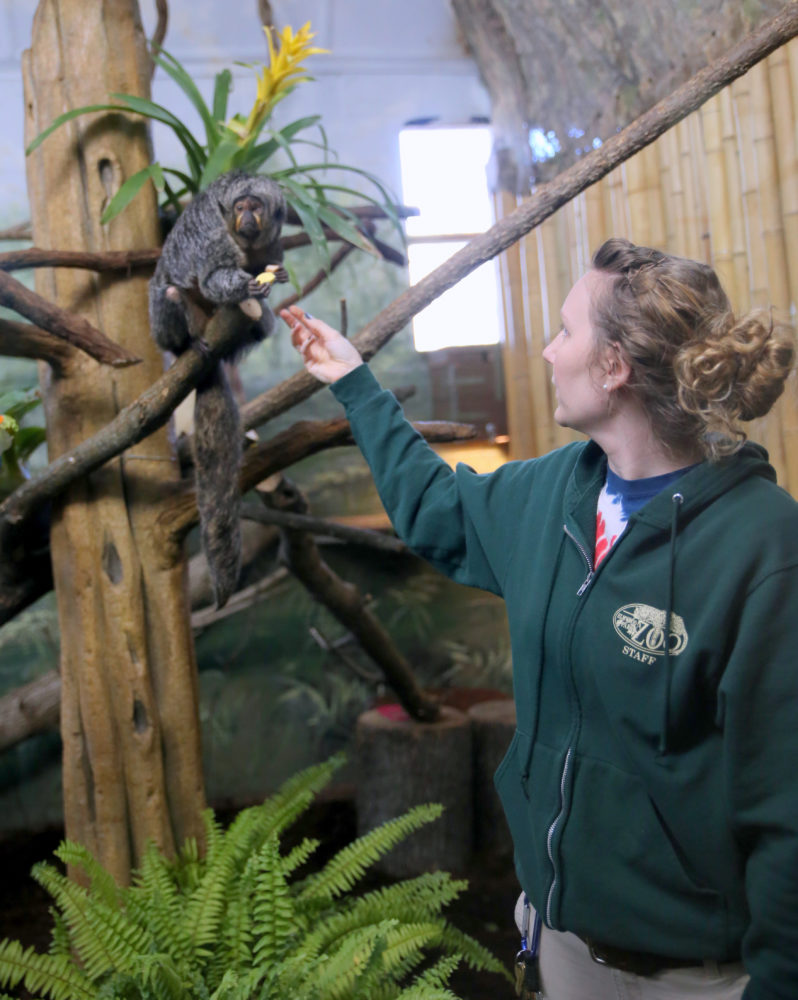Have you ever wondered what it takes to become a zookeeper? Keeper Kelsey gives us the scoop!
Working in an animal care profession is no easy task! It requires years of schooling, training, hands-on experience, and a deep love for animals. Zookeepers work day in and day out, even when it’s 110° or -20°, to take care of the animals under their care.
EPZ Keeper Kelsey gives us the inside scoop on the ins-and-outs of keeper life:
1. What are your day-to-day responsibilities?
My daily responsibilities include cleaning all animal areas, medicating animals as directed, feeding animals as directed, observing animals for any health/behavioral issues/changes, diet preparation as needed, providing animals with species appropriate enrichment, record keeping, and operant conditioning with your assigned animals.
2. What's your favorite part about working at your job?
I don’t really have a favorite! I love so many aspects of my job, cleaning, seeing my animals everyday, watching any babies we’ve had grow up, animal training, giving keeper talks.
3. What's your least favorite part about working at your job?
Probably having to wake up so early in the morning!
4. What do you see as the most challenging aspect of your job?
Sometimes interacting with guests can be the most challenging aspect of the job! Most are wonderful and enjoy learning something new, but occasionally you get people who don’t agree with zoos and are looking for someone to argue or fight with. Remaining cool, calm, and collected can be a challenge!
5. What achievement are you most proud about in your job?
For me, I am most proud of one of my training projects: Mateo the Ocelot. He was always difficult to shift out and get him to happily stay out on exhibit. Over the last two years I’ve worked with him and done some troubleshooting with the exhibit, and now he happily goes out onto exhibit everyday and comfortably stays out there! I’ve also worked on other behaviors with him and now he will even take vaccinations through the fence for us!
6. What are the important skills needed for this job?
You have to be observant, hard-working, work well both alone and in a team, patient, compassionate, resilient, it also certainly helps to be good at reading animal body language and to be physically strong enough to lift and move 50+lbs regularly, but those are also things you can grow as you develop your career.
7. Can you tell us about a difficult situation you were in, and how you resolved it?
Helping to come to the decision to humanely euthanize our male bison, Tatonka, last year. Its always tough to make this call for any animal but its super important to be able to step back and look at your animals and make a decision without letting your emotions get in the way. We love each and every one of our animals and don’t want them to suffer in any way. When we think its getting close to that time we have discussions with the keeper staff, management, and vet staff. We create quality of life assessment forms so we can accurately track how our animals are doing and notice quickly if their quality of life appears to be degrading and make a decision from there.
8. What made you want to work at the zoo?
At first I was interested due the large variety of species housed at the zoo and by the small size of the zoo itself. After my interview with the other keepers I really also wanted to work with them as well, they’re like a second family and super fun to work with!
9. What does your work schedule look like?
I work four ten-hour days a week. I work every weekend, both Saturdays and Sundays. I’m typically at work from 6:50am until 6:15pm. We also all split up the holidays, so that we all work a few of them.
10. What kind of schooling/training did you do before getting this job?
I took a lot of science and biology courses in high school. I went to Unity College in Maine where I got a Bachelors of Science in Captive Wildlife Care and Education. I volunteered at a nature center for 7 years, I volunteered and worked with horses for over 10 years, I’ve also had a few internships at zoos to gain more practical experience. I have some firearms training, operant conditioning training, some limited training on how to give injections, and I like to try and keep myself up to date on new animal information and conservation topics.




